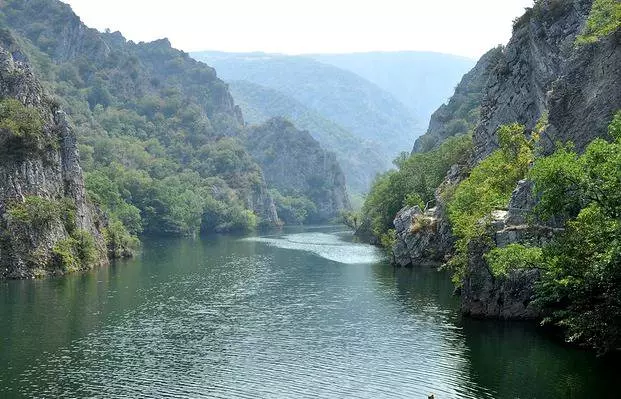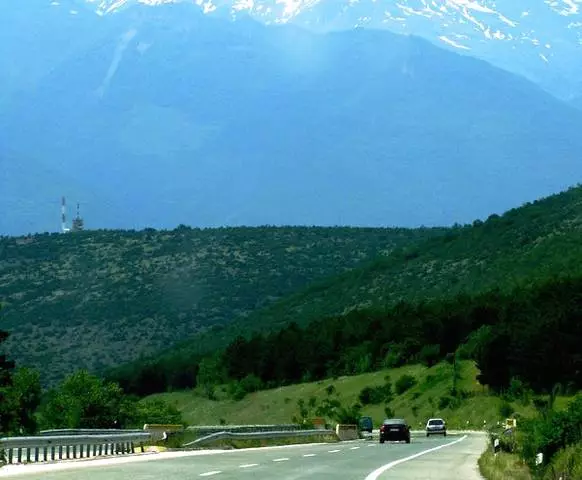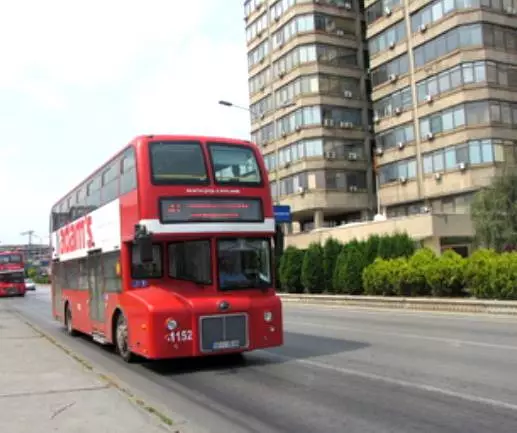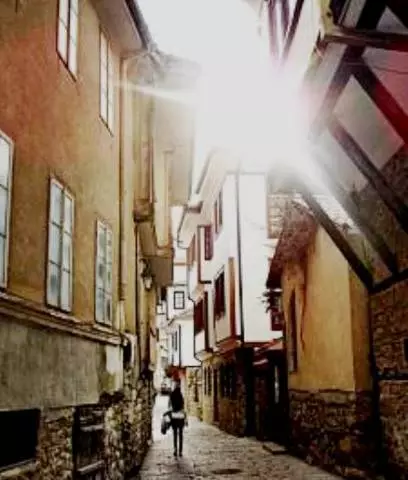About Macedonia, most tourists know only the fact that this small country is geographically located in Europe, or rather, on the Balkan Peninsula. Some of the travelers even knows that many centuries ago, the famous Alexander Great wanted to make Macedonia the center of his powerful state. But about the fact that this small country has picturesque natural corners and well-preserved architectural monuments of antiquity and the Middle Ages are known to few people from Russian-speaking tourists. But if you look at, it turns out that Macedonia little-known to us with wondrous lakes and caves, sacred monuments and various excursion programs is an attractive option for active tourists and travelers who are interested in cognitive tourism.

Culture and language
So, being at one of the popular resorts of Macedonia - in Ohrid, Skopje or Bitol, tourists will find a mixture of modern and ancient national buildings, well-groomed streets in colors, as well as a large number of monuments and colorful natural objects. In this interesting country, hospitable and friendly people live, talking on a funny and uninterrupted to many of us. Disassemble the Macedonian speech is quite difficult. Because of the abundance of solid consonants, it is hardly perceived by tourists. And only because of the fact that many Macedonians living in the resort towns are well dominated by English, the problem with communication is successfully exhausted. For example, in Ohrid, holidaymakers may encounter the fact that the staff of some restaurants does not know English at all, but it has a menu in Russian, German and English. And the Macedonians sitting at the next table, noting the misunderstanding between the waiter and visitors, it will be embedded in a conversation without constraint and help make an order, the first thing to suggest which dishes in this restaurant will certainly try.
Transport and car rental
You can travel in Macedonia on a rented car or on a long-distance bus. Tourists can take the car directly at the Skopje airport or Ohrid immediately on arrival in the country. This requires the driver's license of the international sample, paid insurance, and in some cases a cash pledge. The driver's age should be at least 21 years old. True, some private garages and travel companies engaged in car rental expose demands for the driver's age - at least 25 years. Also additionally will need to pay tax and one-time insurance fees. On average, the car rental will cost tourists in 2000 Denar a day.
In general, moving around the country by car sufficiently comfortable. The main roads of Macedonia have a good coverage, which you will not say about local tracks of some resort villages. They probably needed to repair and install high-quality lighting in the dark.

In addition, in Macedonia there are paid roads, as reported by special signs at the entrance and leaving them. Payment of travel is made from special turnstiles or with coupons that are sold at checkpoints.
An alternative car can be a trip to Macedonia by bus. A bus service is very well developed in the country, especially between popular cities - Ohrid, Skopje and others. Intercity transport in most cases is represented by comfortable buses, the fare is relatively inexpensive. Local residents are often used by buses, and this nuance should be taken into account to tourists planning a trip from one city to another. The fact is that the season tickets are bought very quickly and best of all acquire them in advance. A ticket from Skopje to Ohrid costs about 325 Denar.
As for public urban transport, it is usually obsolete buses. Travel in them is carried out on tickets that are sold in newsstands or directly from the driver. Moreover, the cost of the driver of the driver for some reason more expensive. In the stall for the ticket will have to pay approximately 35 Denar.

Money
The official currency of Macedonia is Denar. Exchange rubles, dollars or euro for local money tourists can be in banks and exchange offices. In small villages, financial institutions work on weekdays from 7:00 to 13:00, and in large cities, the working day in banks is completed at 19:00. To perform the exchange of tourists, it will be necessary to present a passport. However, given that outside of Macedonia, the Danar could not be converted to another currency, travelers should exchange money with small amounts.
The use of credit cards in the country is not particularly welcome. They take them to pay except in expensive hotels and boutiques of Skopje. But it will be easier to remove the cash from the card in one of the resort banks and then pay the "alive" money.
Safety
Macedonia can be called a relatively safe country. Flashing of aggression occurs unless in border areas with Serbia and Kosovo. However, it is possible to travel for these outskirts only with a special permission. As for the popular resort cities, the rest passes quite calmly and safely. Undoubtedly, sometimes there are unpleasant situations associated with small steam and fraud, but no resort is insured. Most often theft of personal belongings occur during walks in Albanian districts. Therefore, tourists are better limited to excursions in the Christian quarters of Skopje, Ohrid and other Macedonian cities.
During self-journey in Macedonia, girls can feel quite safe. At large resorts, you can even walk in the evenings (in Christian tourist areas) without fear of your life.

As for hygienic safety, in Macedonia, you can easily drink water from under the tap and try the pair milk. Local fish is different not only by special taste, but also exceptional freshness. Macedonians are very serious about the quality of food and their freshness.
Customs
Tourists leaving Macedonia is prohibited to export national currency, gold coins and plates, as well as objects of cultural and historical value.
